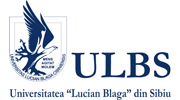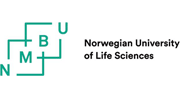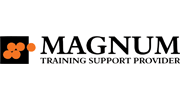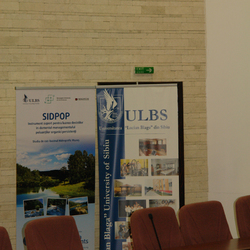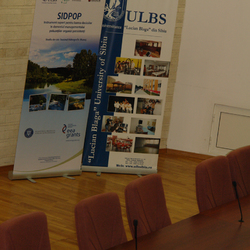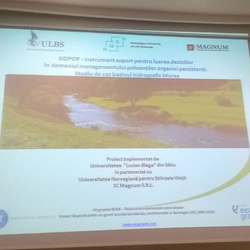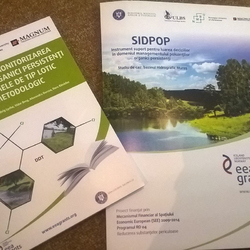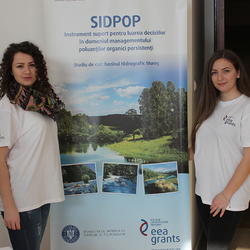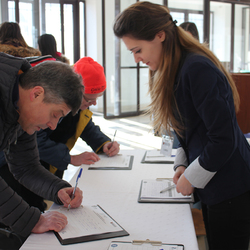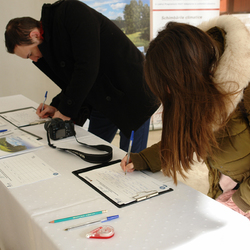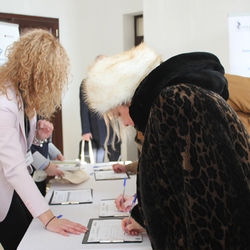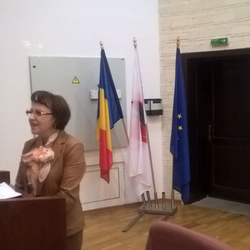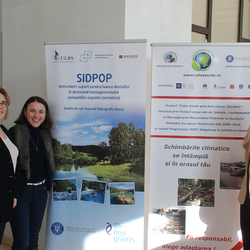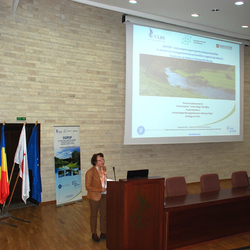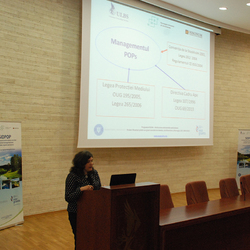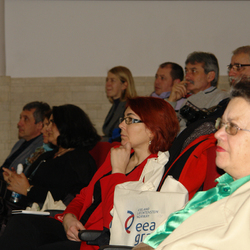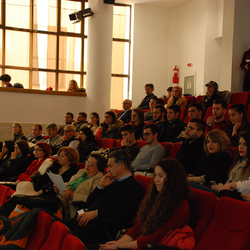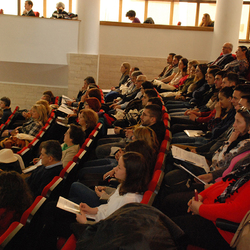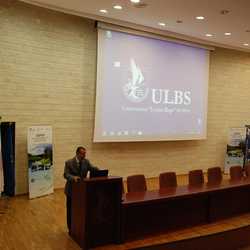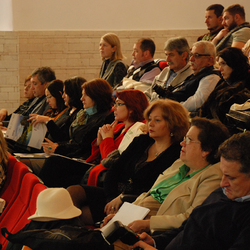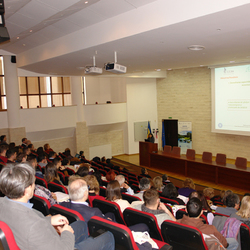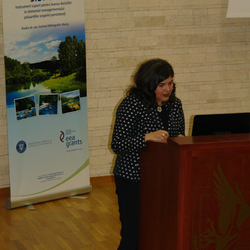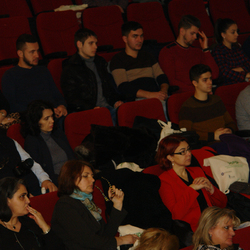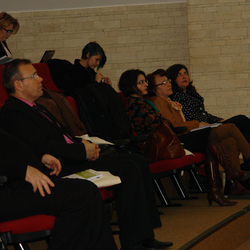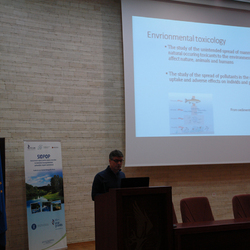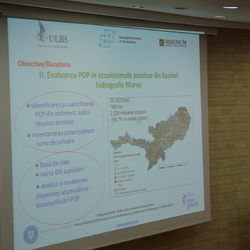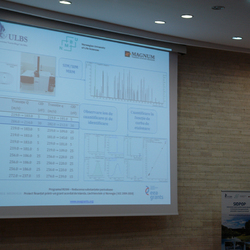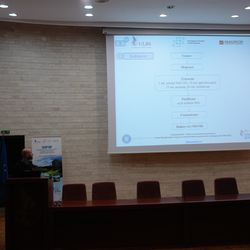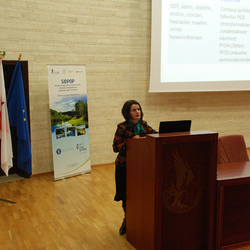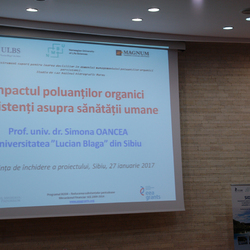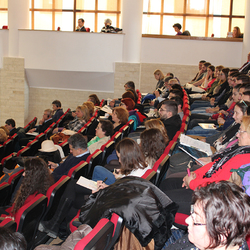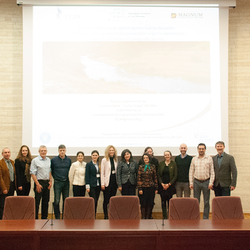PRESS RELEASE
On January 27, 2017, "Lucian Blaga" University of Sibiu hosted the Closing conference of the SIDPOP project - Support instrument for decision making in the management of persistent organic pollutants. Case study: Mures catchment area, financed through the EEA 2009-2014 Financial Mechanism, within the RO04 Programme - Reduction of Hazardous Substances.
The event was attended by: the Director of the Department for Accessing External Funds - Mrs. Marisanda Pîrîianu, heading a team of the Ministry of Environment, as Programme Operator, the management of the "Lucian Blaga" University of Sibiu (ULBS), representatives of project partners from the Norwegian University of Life Sciences from Oslo (NMBU), and also representatives of administrative structures which play a role in the implementation of policies in the field of persistent organic pollutants - Mures Water Basin Administration, National Agency for Fisheries and Aquaculture, Environment Protection Agencies, County Directorates for Agriculture and Rural Development etc.
The project, with a total value of 4,455,637 lei, was implemented by "Lucian Blaga" University of Sibiu, the Sciences Department, in partnership with the Norwegian University of Life Sciences and SC Magnum SRL, during May 2015 - February 2017 and had the overall objective of supporting the decision making process in the field of hazardous chemical substances and waste by through the development of a support instrument for decision making in the management of persistent organic pollutants (POP).
The project results strengthen the capacity of public authorities and institutions responsible for the implementation and enforcement of strategies and EU legislation on hazardous chemical substances and waste - persistent organic pollutants (POP) by: setting up a laboratory for analysing the POP concentration in environment and animal tissues. This laboratory is equipped with state-of-the-art equipment and it was organized according to international standards in the field; development of highly-skilled human resources for POP analysis - five ULBS specialists have gone through training periods with NMBU and other eleven specialists from specialised laboratories in Romania have benefited from a training session of methods of POP analysis, organized within ULBS; drafting the methodological guidelines and work protocols for evaluation and monitoring POP in continental aquatic ecosystems, which include methods for drawing samples, methods for identifying and quantifying POP in sediments, water and aquatic organisms tissues; creating a geo-referencing database on POP pollution in Mures drainage basin - concentration of various categories of POP in water, sediments and aquatic organism (invertebrates and fishes); modelling POP dispersion, accumulation and bio magnification in aquatic eco-systems in Mures drainage basin.
The following documents were drafted and published: Study in POP impact on continental aquatic eco-systems and human health; Methodological Guidelines - Evaluation and monitoring of persistent organic pollutants in lotic ecosystems.
For additional information related to the project, you may contact Angela Bănăduc – Project Manager through phone number 0731.013.045/e-mail address angela.banaduc@ulbsibiu.ro or Ioana Baboi – Communication Officer through e-mail address ioana.baboi@magnumevent.com.
For additional information on EEA grants, please visit www.eeagrants.org and www.eeagrants.ro.
